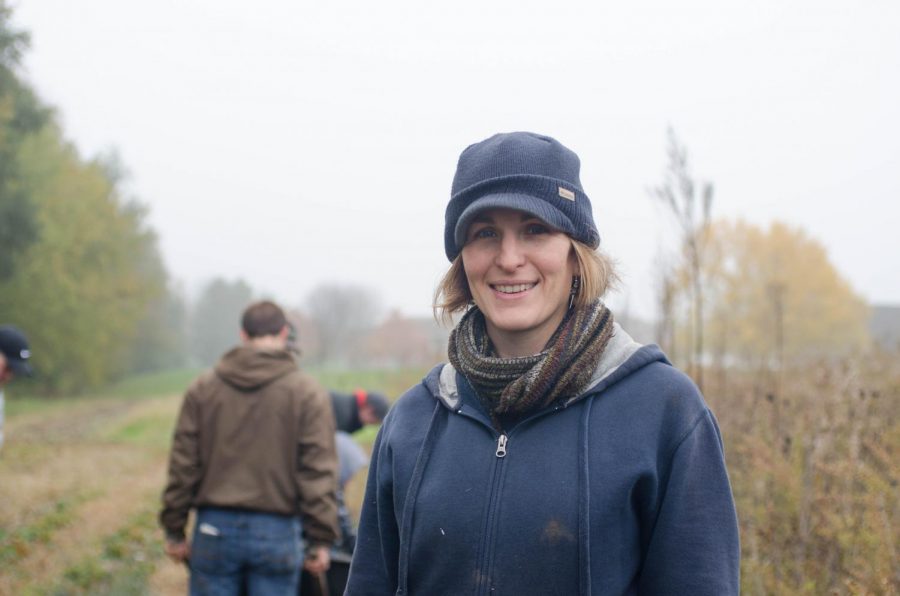University professors and local farm receive grants to improve farming systems
November 6, 2017
Although corn and soybean fields dominate the majority of Illinois’ farmland, the nearly $500 million specialty crop industry is on the rise.
Defined as fruits, nuts and vegetables, specialty crops occupy more than 100,000 acres of farmland and growing status in Springfield as the Illinois Department of Agriculture seeks to expand the state’s agricultural footprint.
As demand for locally grown fruits and vegetables increases, the United States Department of Agriculture finds answers in the Specialty Crop Block Grant program, funneling money to individual states to increase production of and access to specialty crops.
Three projects in Champaign-Urbana were chosen to receive funding through the grant program.
The IDOA chose two University professors and a not-for-profit Urbana farm to receive grants as part of the program.
Get The Daily Illini in your inbox!
“It’s been such a blessing, really,” said Traci Barkley, director of Sola Gratia Farm, of the $24,133 IDOA grant.
St. Matthew Lutheran Church and Faith in Place, an Illinois religious organization, created the farm to respond to the high food insecurity rate in Champaign County. Sola Gratia has donated approximately 30 percent of the produce it has grown since its inception six years ago.
“For people who don’t have enough money to spend on food or to meet other critical needs, vegetables, which are a key part of the diet for health and nutrition, are also one of the most expensive types of food and usually that’s not what limited food dollars are spent on,” Barkley said.
Champaign County grapples with one of the highest rates of food insecurity in Illinois, approximately 1 in 7 people and 1 in 5 children facing uncertainty over where their next meal will come from.
Barkley plans to use the grant money to expand on several successful pilot projects the farm has put in place to increase demand for and access to fresh produce.
Among these pilot programs are partnerships with various public and private institutions to provide produce for cooking classes that teach basic nutrition and life skills, pay-as-you-can produce stands, and reduced price farmers markets.
Rabin Bhattarai, professor in ACES, received a $79,802 grant to develop nontraditional water sources for Illinois’ farms. His interest in treating water started as a teenager growing up in Kathmandu, Nepal, where he would wake up at 5 a.m. twice a week to wait his turn at the taps to fill his family’s tanks with water to use for the week.
“Even in a big city like Kathmandu, even in my house we cannot drink the water that comes out of the tap directly,” Bhattarai said. “That’s what led me to get my degree in civil engineering and then my master’s in water resources and I slowly became interested in water quality.”
Many farmers in Illinois are essentially dependent on rainfall to water their crops, something farmers in drier states like Arizona can only dream of.
However, too little or too much rain can put a rainwater dependent farm in flux, decreasing crop yields and raising the prices of fruits and vegetables for consumers.
Bhattarai plans to develop nontraditional water sources to provide irrigation for specialty crops during drought years when rainwater alone cannot provide enough water to sustain agriculture.
Bhattarai sees treated wastewater and agricultural runoff from tile drainage as potential solutions, and plans to use his grant to work on this.
Most fields, Bhattarai said, in Illinois operate using tile systems, underground networks of pipes that quickly drain excess water from the soil to prevent roots from becoming submerged underwater.
“Because the tile water is clean and has nutrients that can be used by the plant, if you can use tile water to irrigate the crop, what you will see is that you maybe don’t even have to use fertilizer,” Bhattarai said.
Hao Feng, professor in ACES, received a $57,610 grant to develop new strategies to reduce the risk of contamination of microgreens which have become increasingly popular in high end restaurants and fine dining.
Because microgreens are prepared raw to preserve their flavor, risk of contamination is heightened.
“Right now I don’t think there are good sanitation practices,” Feng said. “Each farmer does their own thing, some may use chlorine, others might just use water to wash it. If there’s a big outbreak, then the whole industry will be in trouble and it’ll be a big consumer concern.”
Feng and his team are developing a surfactant, a compound that will lower the surface tension between the seed and the hot water sanitation treatment, which will make it easier for the seeds to be reached by the sanitizers.
Feng will then work with the University’s extension specialists to circulate his research to the community of microgreen farmers by publishing papers and presenting findings at conferences.
“We are a land grant university,” Feng said. “We serve the farmers in Illinois.”







